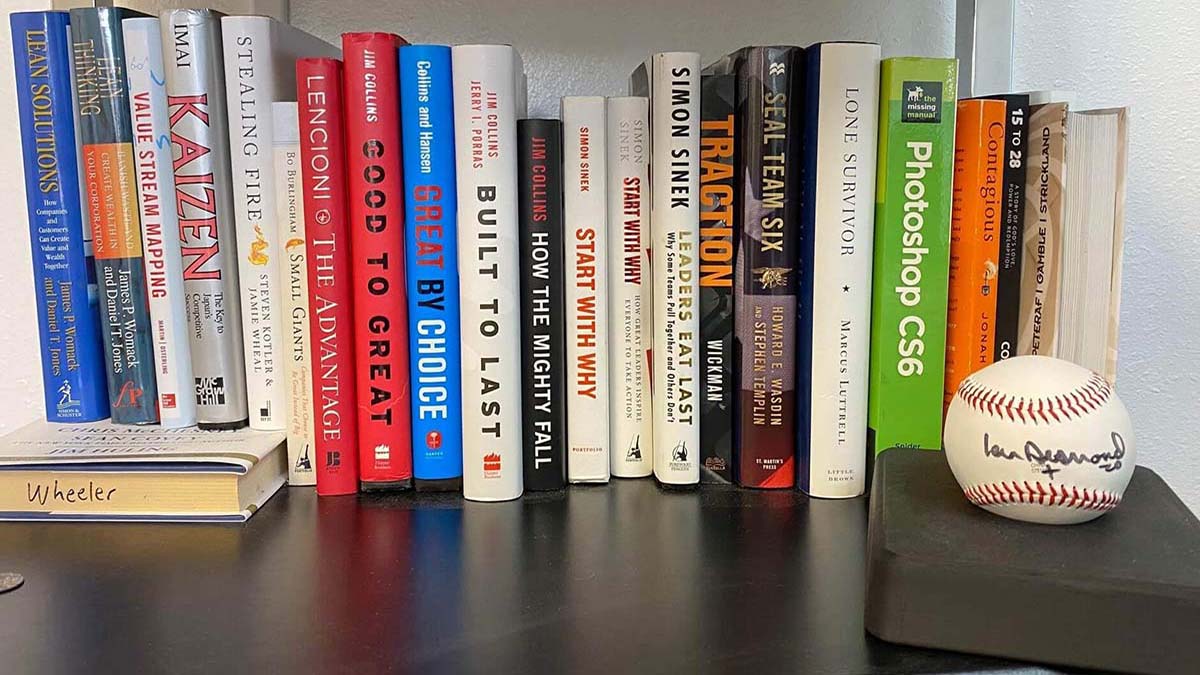Search Articles
1 on 1 Meetings - Beneficial Communication Growth

Est. Reading:
5 min
Published: June 18, 2020
Summary
- 1 on 1 meetings are scheduled times where a team member meets or has a check-in with his/her manager.
- In an effective meeting, for about half of the time, the team member can talk about whatever activities they would like to discuss aside from the meeting agenda items.
- During the 1 on 1 meetings, if the team member talked about non-work/personal items, I'll focus primarily on work/business-related topics, tasks, insights, factors, ideas, and long term goals.
- This is important: following through on status updates and action items goes both ways with 1 on 1 meetings…it is just as important for you, the manager/owner/leader to follow through as it is for your team member to take responsibility to do the same.
- (Side note: keep a notebook or Google doc of discussion items, reminders, and examples - both positive and uncomfortable - so you are ready for your time together at your 1 on 1 meetings) There are a lot more details (how to roll out to the team, notes, agendas, what to use them for/not for, etc.), benefits, frequency, expectations, techniques for 1:1's.
One-on-ones (1:1's) are an important part of how we interact with our team members at Tanner Tees. This post is a brief introduction to what they are and why they are useful.
What are 1:1's?
They are scheduled times where a team member meets with his/her manager. This is a chance to build trust, give and receive constructive feedback, ask for opinions and ideas, and talk about challenges, and career goals and career growth. We use them for a lot of things, but it really comes down to building communication and trust between participants. How can you build trust if you aren't communicating with an individual on a regular basis?
Why Spend So Much Time "Not Working"?
When I was talking with Andy & AJ about joining the team, I told them I wanted to meet with the team members once a week for 30 minutes. Doing some quick math, they pushed back on these weekly check ins. The concern was that's a lot of time spent "not working". After some discussion (basically - this blog post in verbal form), the solution was that they agreed to a trial, to try it for a few months & reevaluate after that. We have been doing 1:1's for about two years and still stick to the consistency of 30 minutes once a week schedule because of the benefits we see from communication and building rapport.
"We have been doing 1:1's for about two years and still stick to the 30 minutes once a week schedule because of the benefits we see from communication."
What Do You Talk About?
The timeline for one on one meetings is split, for about half of the time (about 15 minutes), the team member can talk about whatever subject they would like to discuss, they are the speaker. This is their perfect time to talk about whatever is on their mind or agenda. I encourage them to jot down questions or list of topics throughout the week to bring to our time together.
My phone is off the table & on silent mode. Distractions are at a minimum, they have my undivided attention. I want them to know and have confidence that this is their dedicated time, dedicated just to them. Some come in with questions about the company/organization, products, tactical issues, processes, etc. Others chat about hobbies, family, politics, etc. They direct the conversation & that's the point, employee engagement is the goal.
The other half of the time is my time. If the team member talked about non-work/personal items, I'll make the conscious effort to focus primarily on work/business-related topics. If, on the other hand, they talked about business & professional topics, I'll ask them questions about non-work/personal items in a sensitive, boundary aware way.
Regardless of what they talked about, it is always my objective to have questions about their job, the company, the team, processes, etc. An important note: I always go second & never ask a specific question to get things started. This is their time (at least the first half of it). I don't want to derail, influence, or highjack the entire meeting by asking about "that thing we talked about the other day".
Benefits of 1:1's?
High-functioning teams get that way only if they build trust. A huge advantage of communication & regular face-to-face time help build familiarity, understanding, and trust. A lot of my 1:1's end with an action plan or items for both me and my direct reports. When we follow through on those action items from a previous meeting, it builds more trust. This is important: following through on action items goes both ways…it is just as important for you, the manager/owner/leader to follow through as it is for your team member to do the same.
"When we follow through on those action items, it builds more trust."
Scheduled face-time forces you to be accountable with conversations and real issues. Been avoiding that problem employee or sticky situation? It's harder to avoid if you have a 1:1 scheduled. Have you forgotten to give a shout-out, kudos, or recognition to someone? You'll have an easier time remembering that 'thank you' because they'll be in your office on Tuesday at 9:30 am. (Side note: keep a notebook of discussion items - both positive and uncomfortable - so you are ready for your time together)
Summary
There are a lot more details (how to roll out to the team, notes, agendas, what to use them for/not for, etc.), benefits, techniques for 1:1's. If you are doing them, great. If not, why not? Take a look into them, do some research, start communicating with your team. I can't imagine being responsible for a team where we didn't have regular 1 on 1 meetings.


